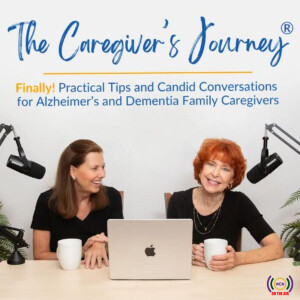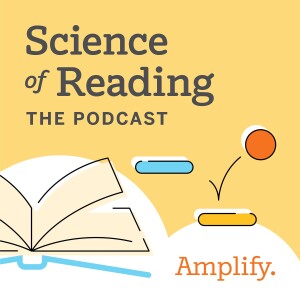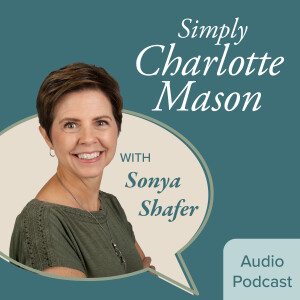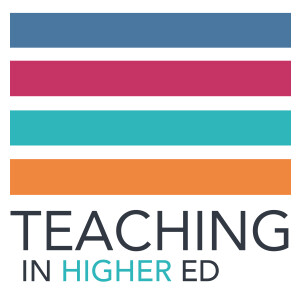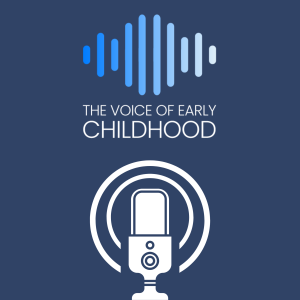

The Voice of Early Childhood
https://feeds.libsyn.com/469116/rssEpisode List
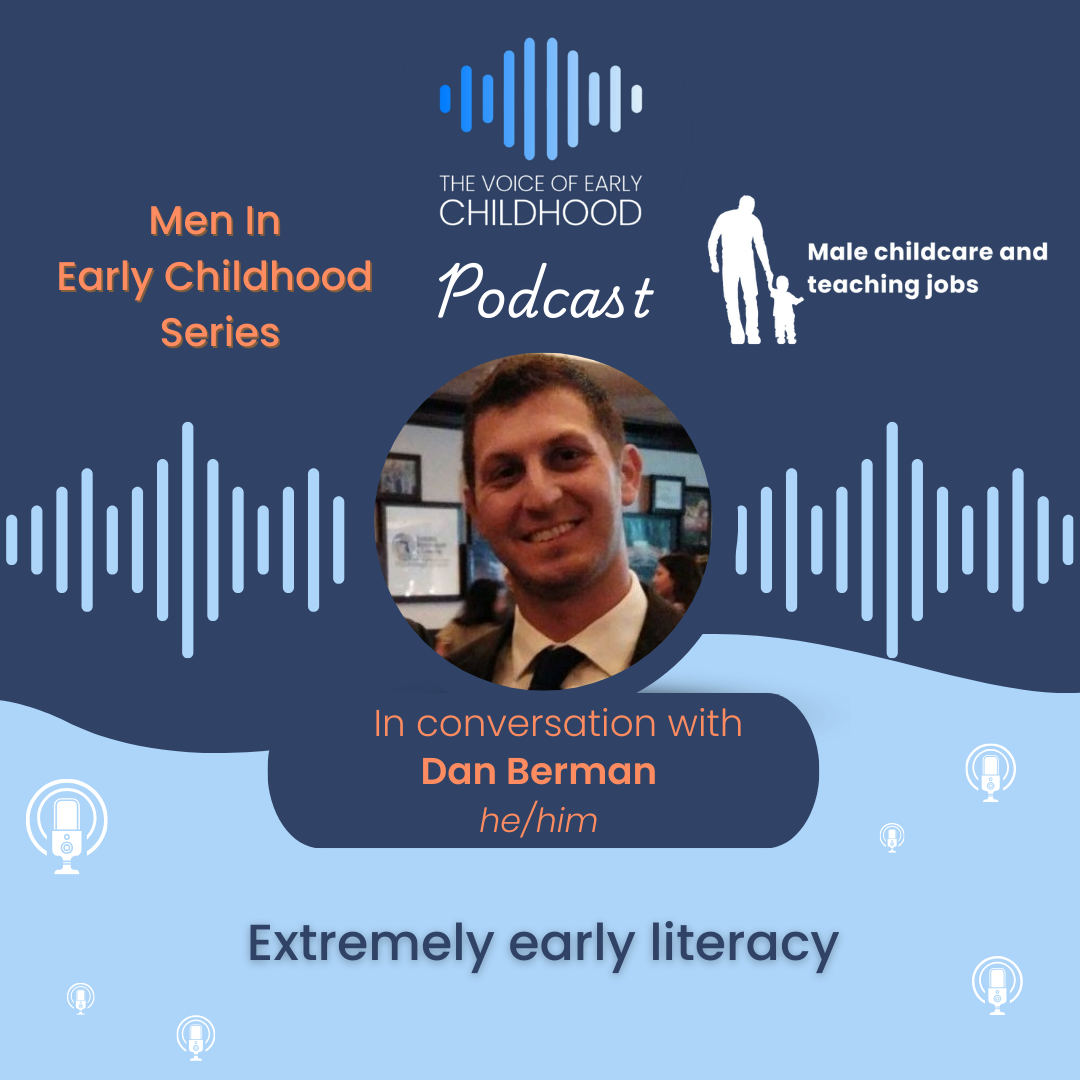
Extremely early literacy
How early is too early for literacy? It is never too early! This article and podcast episode explore the significance of early literacy from the prenatal period onwards. Drawing on brain development research and practical strategies, it highlights the power of narration, modelling, and bonding through books—laying strong foundations for language and a lifelong love of reading. Read the article here: https://thevoiceofearlychildhood.com/extremely-early-literacy/ This episode is in partnership with Male Childcare and Teaching Jobs. Male Childcare and Teaching Jobs advocate for greater male participation in education and caregiving roles, offering support and guidance to enhance gender inclusion in nurseries and schools. To find out more visit: https://malechildcareandteachingjobs.co.uk/ Listen to more: If you enjoyed this episode, you might also like to hear more at https://thevoiceofearlychildhood.com/articles/men-in-early-childhood/ Our 2026 conference info & tickets: https://thevoiceofearlychildhood.com/early-years-conference-2026/ Get in touch and share your voice: Do you have thoughts, questions or feedback? Get in touch here! – https://thevoiceofearlychildhood.com/contact/ Episode break down: 00:00 – Welcome! 01:30 – New host introduction 04:00 – United for Literacy Initiative 05:00 – Dolly Parton's Imagination Library 08:45 – Prenatal early literacy 13:15 – The 30 million word gap 14:20 – Language immersion through narration 16:00 – You can never spoil a baby 17:10 – Book prescriptions by physicians 18:40 – Instilling a love for books early 20:00 – Books for babies 23:00 – Creating dedicated reading spaces 26:00 – Diversity & representation in books 30:00 – Screens vs physical books 35:45 – Presence & teachable moments 39:45 – Reading doesn’t start at age 3+ 41:00 – PreemieWorld Foundation – supporting premature babies 43:00 – Future episodes For more episodes and articles visit The Voice of Early Childhood website: https://www.thevoiceofearlychildhood.com
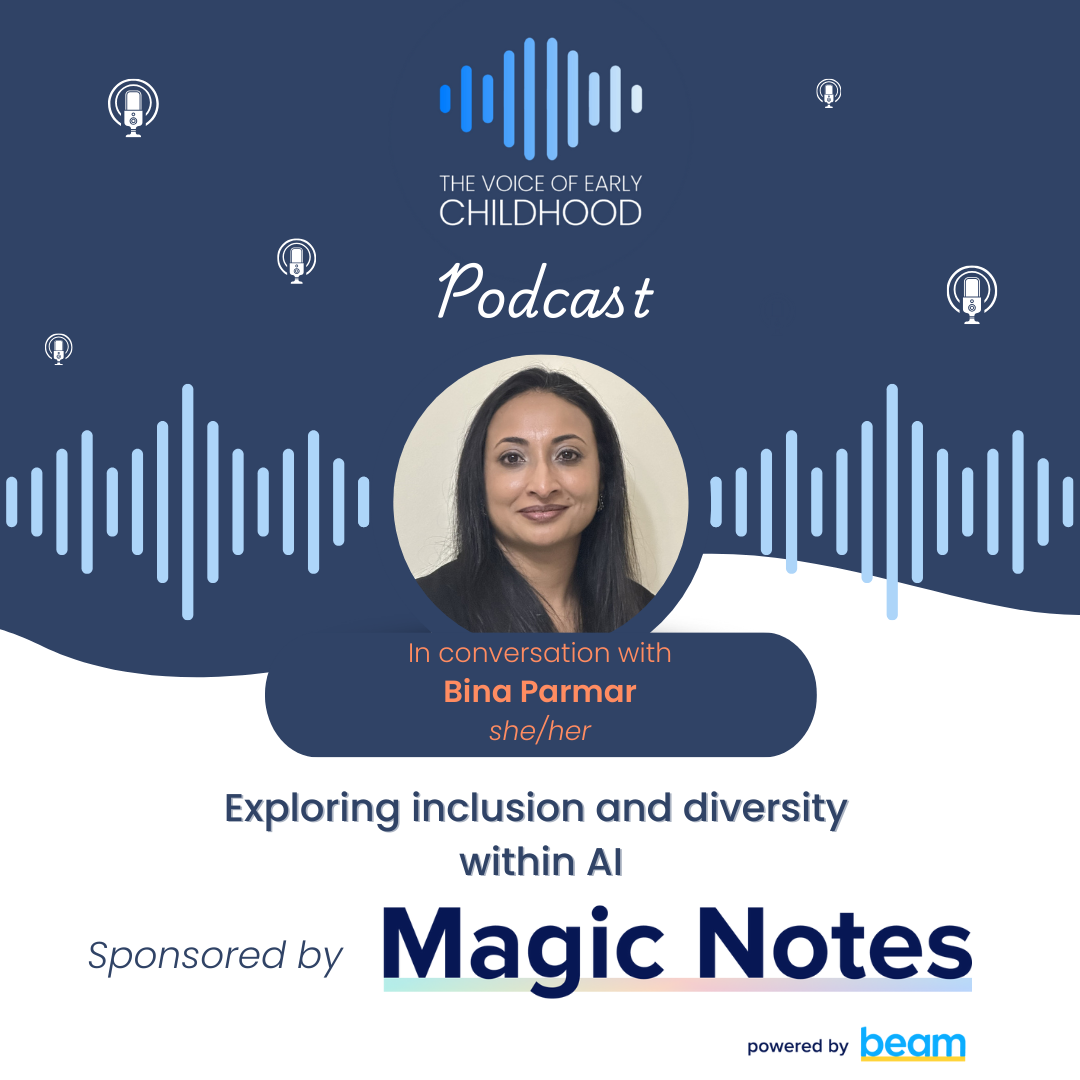
Beyond the algorithm: Exploring inclusion and diversity within AI
The use of Artificial Intelligence (AI) offers a pivotal role in reshaping daily practice by streamlining the administrative processes, therefore freeing up valuable time and reducing time burden administrative tasks. AI can also support individuals with learning difficulties, dyslexia and visual impairments alongside non-native English speakers. However, AI is far from being inclusive whilst also raising significant ethical concerns that need to be considered. This podcast episode and article explores all of this and more. Read the article here: https://thevoiceofearlychildhood.com/beyond-the-algorithm-exploring-inclusion-and-diversity-within-ai/ This episode is sponsored by Magic Notes by Beam Beam is a national leader in tech-enabled welfare services, and created Magic Notes - an AI tool designed by frontline workers to help reduce admin and transform the productivity of frontline teams. The tool creates structured and compliant reports and case studies from recordings of meetings between frontline workers and their clients. Magic Notes was first developed by Beam to support its own frontline teams, before being made available to other frontline workers. It has since been co-developed with frontline practitioners during pilots with several local authorities, including Kingston, Ealing, and Swindon, and is used by over half of all local authority social care teams across the UK. To find out more visit: https://magicnotes.ai/ Our 2026 conference info & tickets: https://thevoiceofearlychildhood.com/early-years-conference-2026/ Listen to more: If you enjoyed this episode, you might also like: · How can AI positively impact education? By Richard Waite: https://thevoiceofearlychildhood.com/how-can-ai-positively-impact-education/ · Active vs passive screen time by Musa Roshdy: https://thevoiceofearlychildhood.com/active-vs-passive-screen-time/ · Using artificial intelligence in early years by Joshua Barr: https://thevoiceofearlychildhood.com/using-artificial-intelligence-in-early-years/ Get in touch and share your voice: Do you have thoughts, questions or feedback? Get in touch here! – https://thevoiceofearlychildhood.com/contact/ Episode break down: 00:00 – Welcome! 03:30 – Defining & unpicking AI 06:00 – The need for human intelligence 07:00 – Reducing the burden of admin 08:00 – AI reflecting the voice of the individual 10:45 – Using AI for accessability 14:00 – AI and ethics – whose voice is heard? 15:00 – Diversity crisis in technology 18:30 – Changing the narrative around STEM subjects 20:30 – Representing the child’s voice 25:00 – The need for training in using AI 30:00 – Using Magic Notes 34:00 – Risk assessing the use of AI 34:45 – The impact on the child and family 37:30 – Changing the gender narrative in tech 39:00 – Closing reflections 40:45 – Further listening & reading For more episodes and articles visit The Voice of Early Childhood website: https://www.thevoiceofearlychildhood.com
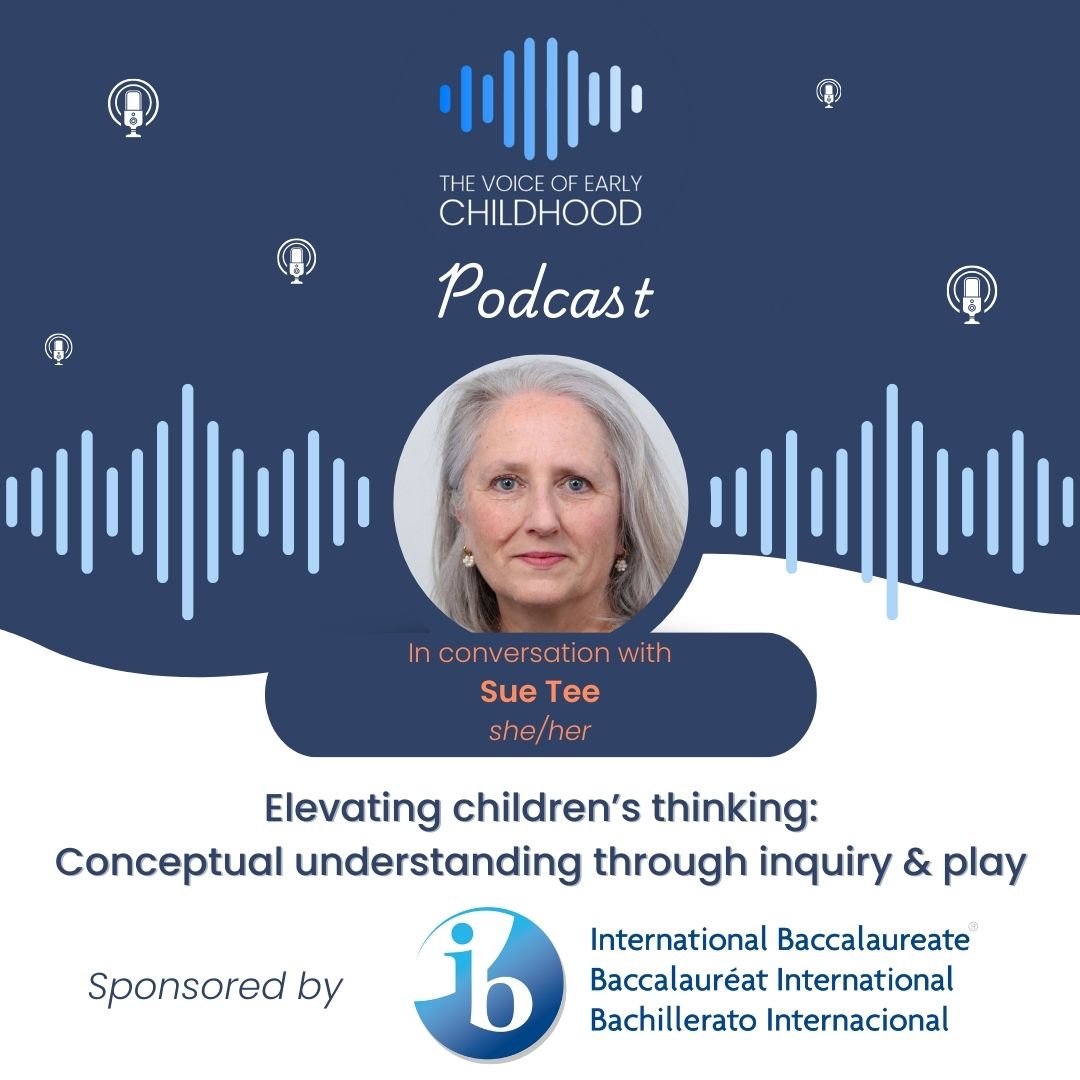
Elevating children’s thinking: Conceptual understanding through inquiry and play
The International Baccalaureate (IB) emphasises concept-driven inquiry. In the Primary Years Programme (PYP) learners explore broad and transferable ideas, enabling deeper thinking and application across different contexts. This powerful way of thinking and learning begins with our younger learners who inquire into the world around them and develop conceptual understanding through both educator-led experiences and play. Read Sue’s article here: https://thevoiceofearlychildhood.com/elevating-childrens-thinking-conceptual-understanding-through-inquiry-and-play/ This episode is sponsored by the International Baccalaureate: Founded in 1968, the International Baccalaureate (IB) pioneered a movement of international education and now offers four high quality, challenging educational programmes to students aged 3-19. The IB gives students distinct advantages by providing strong foundations, critical thinking skills, and proficiency for solving complex problems while encouraging multiculturalism, curiosity, and a healthy appetite for learning and excellence. In a world where asking the right questions is as important as discovering answers, the IB champions critical thinking and flexibility in study by crossing disciplinary, cultural, and national boundaries. Supported by world-class educators and coordinators, the IB currently engages with more than two million students in over 5,900 schools across 160 countries. To find out more visit: https://www.ibo.org/ Our 2026 conference info & tickets: https://thevoiceofearlychildhood.com/early-years-conference-2026/ Listen to more: If you enjoyed this episode, you might also like: · Enquiry led learning: A curious classroom by Stuart Cloke – https://thevoiceofearlychildhood.com/enquiry-led-learning-a-curious-classroom/ · What is an early years curriculum? By Jan Dubiel and Ruth Swailes – https://thevoiceofearlychildhood.com/what-is-an-early-years-curriculum/ · The Cornish Curriculum by Mandy Richardson - https://thevoiceofearlychildhood.com/the-cornish-curriculum/ Get in touch and share your voice: Do you have thoughts, questions or feedback? Get in touch here! – https://thevoiceofearlychildhood.com/contact/ Episode break down: 00:00 – Welcome! 03:00 – What is the International Baccalaureate? 04:30 – What is conceptual understanding? 09:30 – Taking a curious stance as an educator 12:00 – Looking beyond what children are doing 13:30 – Having the time for analysing observations 15:50 – Educator planned inquiries 18:50 – Learning the concept of responsibility 22:30 – Self-expression in different ways 24:30 – A responsive planning process 29:00 – Concepts or skills & facts? 31:00 – Adult extended inquiries 36:00 – Honouring children’s thinking 37:00 – Key takeaways For more episodes and articles visit The Voice of Early Childhood website: https://www.thevoiceofearlychildhood.com

Tummy time is an outdated notion
This article and podcast episode challenges the conventional practice of tummy time, drawing on research from Pikler, Feldenkrais, and Goddard Blythe to argue that babies thrive when allowed to move freely and naturally. It explores how self-initiated movement supports neurological development, reflex integration, and emotional regulation—highlighting the importance of trust, observation, and respectful environments over intervention and milestone-driven practice. Read the article here: https://thevoiceofearlychildhood.com/tummy-time-is-an-outdated-notion/ This episode is sponsored by Pikler UK Pikler UK promotes the principles of the Pikler® approach: respectful care, free movement development, and self-initiated play in the early years. We offer training and resources for parents and professionals, supporting secure relationships and natural development. Rooted in the work of Dr Emmi Pikler, we nurture trust in each child’s competence from the very beginning. To find out more visit: https://pikler.co.uk/ The Pikler UK conference: https://pikler.co.uk/shop/conference-25 Listen to more: If you enjoyed this episode, you might also like: · The Pikler Triangle: The tip of the iceberg – https://thevoiceofearlychildhood.com/the-pikler-triangle-the-tip-of-the-iceberg/ · An introduction to Emmi Pikler – https://thevoiceofearlychildhood.com/introduction-emmi-pikler/ Get in touch and share your voice: Do you have thoughts, questions or feedback? Get in touch here! – https://thevoiceofearlychildhood.com/contact/ Episode break down: 00:00 – Welcome! 01:45 – Reflexes & tummy time 04:00 – School readiness linked to reflexes 06:00 – Is my child behind? 08:50 – Should we help babies to roll over? 11:00 – Building resilience through freedom of movement 13:40 – Development through loving presence 14:30 – How does it feel for the child being rushed to the next step? 18:20 – Learned helplessness 21:00 – Movement as communication & relationship building 25:00 – Containment – restrictive movement 28:00 – Issues arising from containment 30:00 – Pikler UK conference 2025: Born ready 31:20 – Challenging the notion of school readiness For more episodes and articles visit The Voice of Early Childhood website: https://www.thevoiceofearlychildhood.com
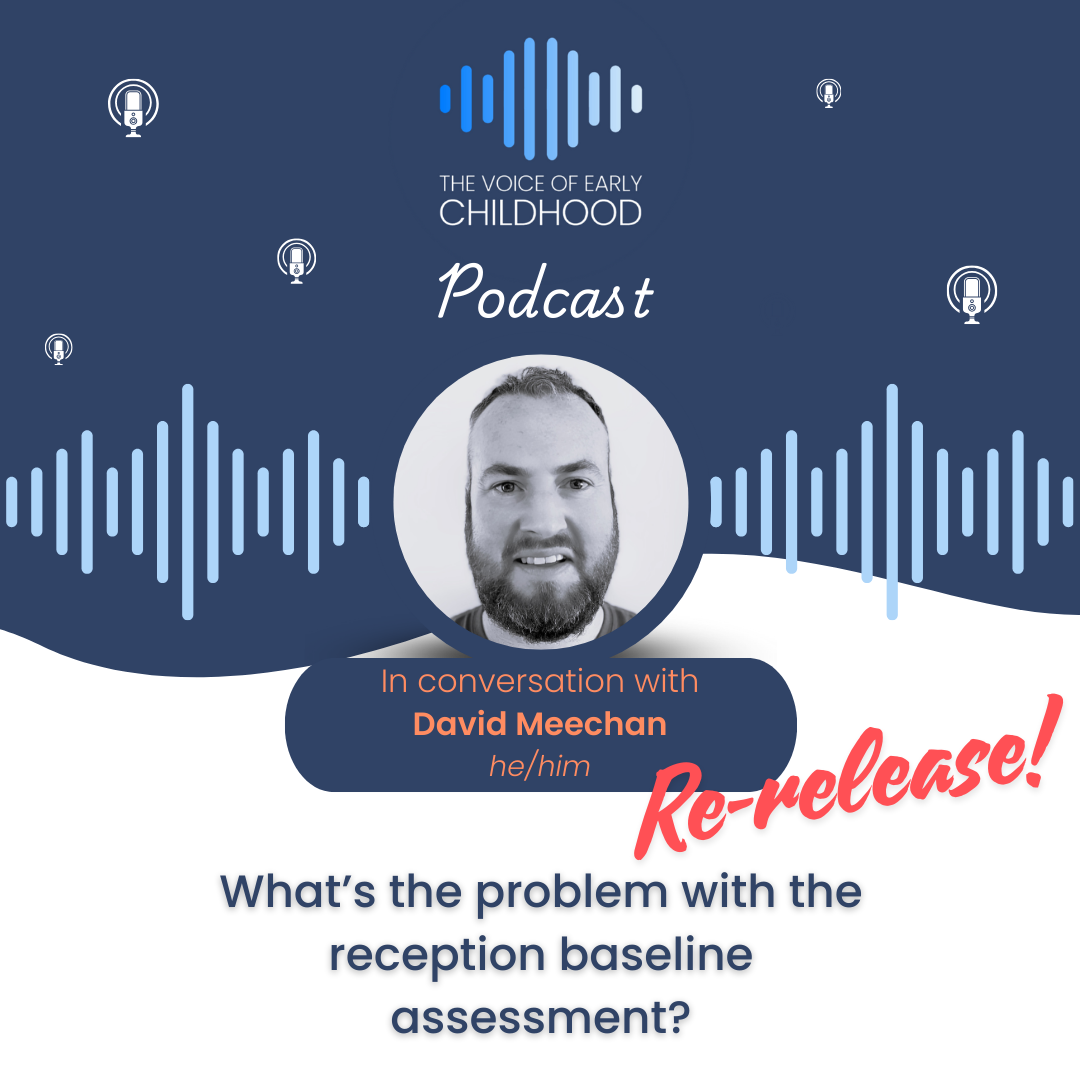
Making the most of the Reception Baseline Assessment
In this re-released episode and article David Meechan critically explores the reception baseline assessment (RBA), questioning its purpose, reliability and impact on children, teachers and families. Drawing on his research and personal experience, he highlights practical ways educators and leaders can navigate the RBA while advocating for assessment approaches that truly reflect and support child-centred learning in the early weeks of school. Read the article here: https://thevoiceofearlychildhood.com/whats-the-problem-with-the-reception-baseline-assessment/ Our 2026 conference info & tickets: https://thevoiceofearlychildhood.com/early-years-conference-2026/ Get in touch and share your voice: Do you have thoughts, questions or feedback? Get in touch here! – https://thevoiceofearlychildhood.com/contact/ Episode breakdown: 03:30 - How David's work started on the RBA 05:50 - Requesting his son's withdrawal from the assessment 07:55 - Inconsistencies of withdrawal from the assessment 09:30 - Moral issues with assessment and testing 11:30 - Research into the baseline assessment 14:40 - Signing away a child's data footprint 15:57 - The datafication of early years 19:00 - Are the children's best interests at heart? 20:40 - Taking teachers out of classrooms 21:58 - Key findings from David's baseline research 23:50 - Treating children as a means to an end 27:35 - Making the most of the reception baseline assessment 29:00 - A holistic approach to the baseline assessment 30:40 - Reliability of the baseline assessment 32:00 - Reducing lived experiences to abstract numbers 34:15 - Positives taken from the baseline assessment 36:00 - Giving value to assessment 40:00 - Tips for teachers conducting the baseline assessment Hear and read more on The Voice of Early Childhood website: www.thevoiceofearlychildhood.com
Create Your Podcast In Minutes
- Full-featured podcast site
- Unlimited storage and bandwidth
- Comprehensive podcast stats
- Distribute to Apple Podcasts, Spotify, and more
- Make money with your podcast
